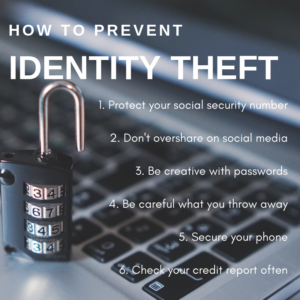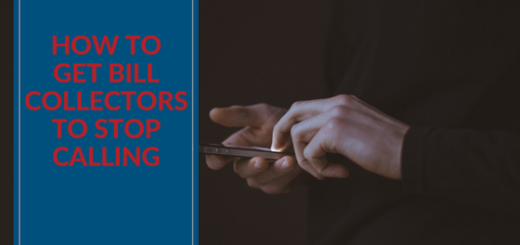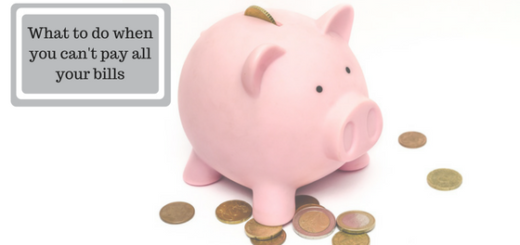When Identity Theft Strikes: What You Need to Know to Keep Your Money Safe
 Having your credit card or personal information compromised is the worst. Not only can it feel scary that someone has your most personal information, but it can also be a nightmare. Someone else is making financial and personal decisions in your name without your consent. According to Experian, U.S. consumers reported a total loss of $905 million in 2017 alone due to fraud and identity theft. Fraud and identify theft affected more than 16.7 million people in 2017. To make matters worse, this represents a nearly 22% increase over 2016. If you’re one of the millions who’ve had their private financial information stolen, you know this nightmare. Here are our top tips for preventing, identifying and resolving identity thefts.
Having your credit card or personal information compromised is the worst. Not only can it feel scary that someone has your most personal information, but it can also be a nightmare. Someone else is making financial and personal decisions in your name without your consent. According to Experian, U.S. consumers reported a total loss of $905 million in 2017 alone due to fraud and identity theft. Fraud and identify theft affected more than 16.7 million people in 2017. To make matters worse, this represents a nearly 22% increase over 2016. If you’re one of the millions who’ve had their private financial information stolen, you know this nightmare. Here are our top tips for preventing, identifying and resolving identity thefts.
What is identity theft?
Identity theft occurs when someone uses your personal information for financial gain without your consent. Thieves can use your full name, social security number, banking information or credit card numbers. They can use your information to apply for credit or loans, make purchases, open new accounts in your name—just to name a few things (all of which can completely torpedo your credit if undetected).
How does it happen?
Identity theft can happen in a variety of ways. In recent years, large-scale data breaches such as those at Equifax and Facebook have led to the sharp increase in instances of identity theft. But, identify theft doesn’t occur only because of big-time hackers. A thief can go through your mail or dumpster to obtain your private information. Or, they could get your information via a phishing scam (a fraudulent email or phone call that occurs with the intent of stealing from you).
How do you prevent it?
Identity theft can happen at any time to anyone. This doesn’t mean you need to live your life in fear. Though not all identity theft occurrences are avoidable, a few simple precautions can help you ward against thieves.
- Keep your social security number secret. It’s the key to all your personal information. Don’t give it out without knowing exactly who you’re giving it to and why, and keep your card in a secure place (not your wallet).
- Be creative with passwords. Thieves can be clever. They can find out your name, birth date, pet’s name and maiden name. Steer clear of using something obvious or easy to find out. They’ll likely have a tougher time guessing a random series of letters, numbers and symbols. Vary your passwords. If you use the same password for everything, it will be easier for someone to steal even more of your information.
- Be careful what you share. With social media and the web, your birth date, address and family members’ names can all be found in a few clicks. It’s ok to be on social media, but be selective in what you share with the public.
- Watch your trash. Before you throw out old mail, bills, card offers or other documents, be sure you’ve shredded anything with your name, address or other identifying information. It’s gross, but even trash is fair game to a thief.
- Secure your phone. Don’t leave your phone unprotected without a pass code. Enable two-factor authentication when possible. Also, limit your time on a public wi-fi network. Anyone can see your data.
- Check your credit report and bank statements frequently. Look for purchases you don’t recall making, or credit activity that doesn’t belong to you. Even if you take every imaginable precaution, you can’t prevent all occurrences of fraud or theft. But, you can catch it early if you check your records often.
What if it happens to you?
If you think your identity or some of your identifying information has been stolen, don’t panic. Contact your bank immediately to request they put a hold on your accounts. Then, contact one of the major credit bureaus (Equifax, Experian or TransUnion) and have them freeze your account. This will prevent anyone from applying for credit with your name or social security number. You will also want to check that no one has already used your information. Once you report fraud or theft with one bureau, you can have them report it to the other two.
For more tips on handling credit card fraud, tax fraud or other forms of fraud, click here.


